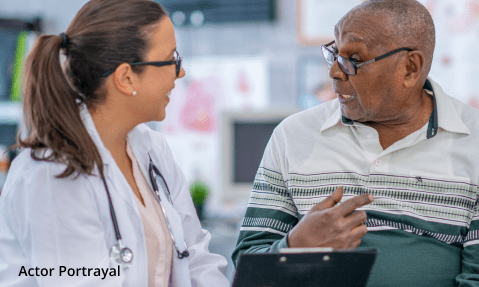Tips for your next visit
While you will meet with your care team regularly to manage and track your CTCL, don’t forget the big role you play.
Communication with your care team is key to your treatment, see some tips below:
- Be open and honest. Share details of your ongoing symptoms during and between office visits
- Ask questions. There are no wrong questions. Ask about tests, results, treatments, and your disease status so you feel more confident in your care journey
- Take notes. Keep a journal to log how you feel and how your symptoms are changing and write down the results of tests when they are performed
- Be prepared. Take pictures of your patches, plaques, and tumors to bring with you to appointments
- Follow up. Stay in touch with your doctor. If you feel that your treatment isn’t doing enough or is causing side effects that are uncomfortable, speak up

If you feel your needs aren’t being met, don't hesitate to ask more questions —
Helpful tips for caregivers
Helping your loved one after a cancer diagnosis can feel like an overwhelming task. Simply showing up and being helpful is the best support you can offer. Here are a few pointers to help you get started on your caregiver journey.
Keep checking in
Creating time and space to talk with your loved one can help give them an outlet. By playing an active role in communicating, you can help remind them that they are not alone during their treatment journey
Lend a hand
Take notes when you can. This can include monitoring hard-to-see symptoms, keeping track of appointments, and writing down test results or other important information from doctor visits. Your loved one may need help taking pictures of skin lesions they can’t see, like on the back of their neck or torso
Discover resources
There are organizations that focus on giving you the information and support you need
Remember, being a caregiver can take a lot of work. It’s normal to feel stress, fatigue, anxiety, or depression. You deserve help, too. In fact, taking time to take care of yourself will also benefit your loved one. Reach out to family members, friends, or local support groups to build a support system.




